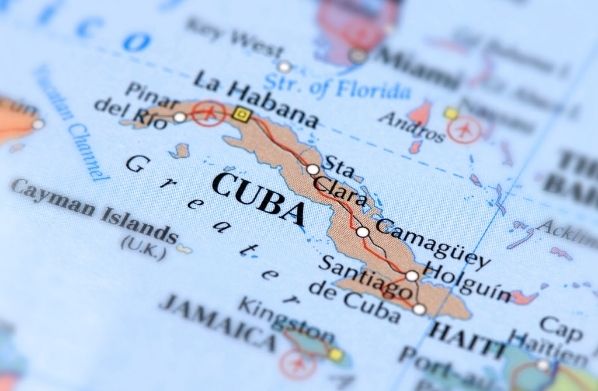To coincide with President Obama's visit to Cuba, the New York Times Sunday did a front-page photo essay on the island entitled "Cuba on the Edge of Change."
Nowhere in the spread did I see real evidence that Cuba is on the brink of change, unless U.S. tourism does serve to rescue the island from the economic depredations visited upon it by the Castro regime and made beautiful and haunting by the photographs. If that is your day to day life, however, I doubt that it is as picturesque.
One thing that apparently isn't on the edge of change is the revolutionary imagery:
In a land of iconic imagery, perhaps no images are more revered, marketed or pervasive than those of the nation’s revolutionary heroes. Ground zero for this iconography is the Plaza de la Revolucíon. The black outlines of Fidel Castro, Ernesto Che Guevara and Camilo Cienfuegos grace the walls of buildings flanking the plaza, their images looming large over the heart of the nation.
I was fascinated by this:
Though Cuban society has been closed off from the world for a half-century, there remains an uncanny openness about the nation’s people. Pop into a random apartment and the worst you may get is a wary stare, followed by a joke. Cubans seem inoculated from the preoccupation with privacy that infects other countries. Life is lived in public here, doors cast open to the night, beckoning the passers-by.
Another way to say this is that a Communist revolution destroys a human being's sense of privacy. The left has long had a juvenile fascination with Cuba and her supposedly romantic revolutionaries. It was inevitable that President Obama would restore diplomatic relations with Cuba, and I am sure that many readers of this blog are, like me, of two minds about that. I do wish, however, that in doing so, he had gotten more for the Cuban people and for the U.S. It is a shame that he didn't.
Meanwhile, our new friends in the Cuban regime are trying to prevent dissidents from meeting with President Obama on Tuesday. I hope many manage to show up and talk to the president. Somehow, though, I don't think we'll see a "tear-down-this-wall" moment from President Obama in the Castro brothers' paradise, which (pace the New York Times) appears more as a sad but beautiful place of stable poverty than a society on the edge of change. I hope I am wrong.


